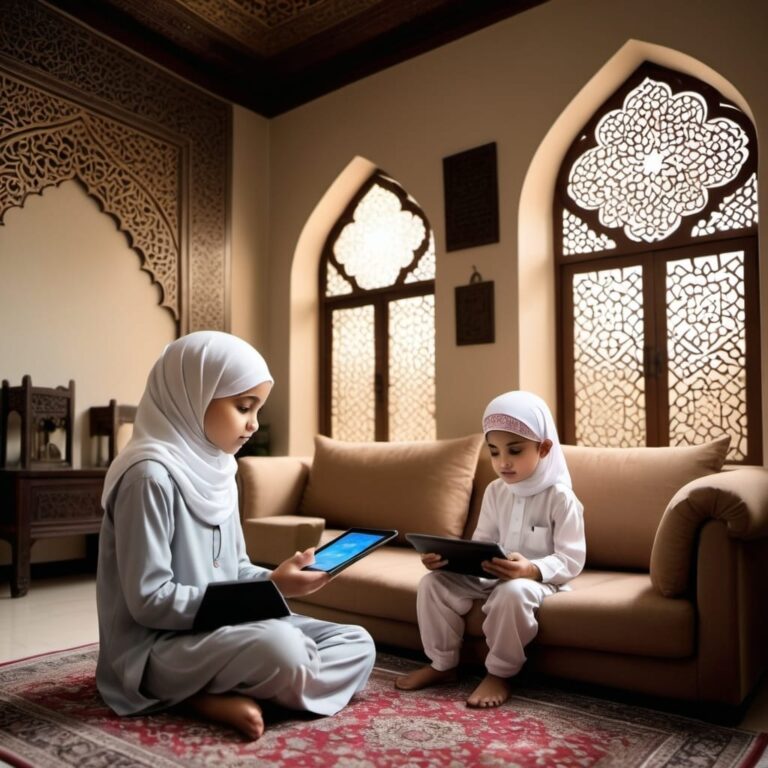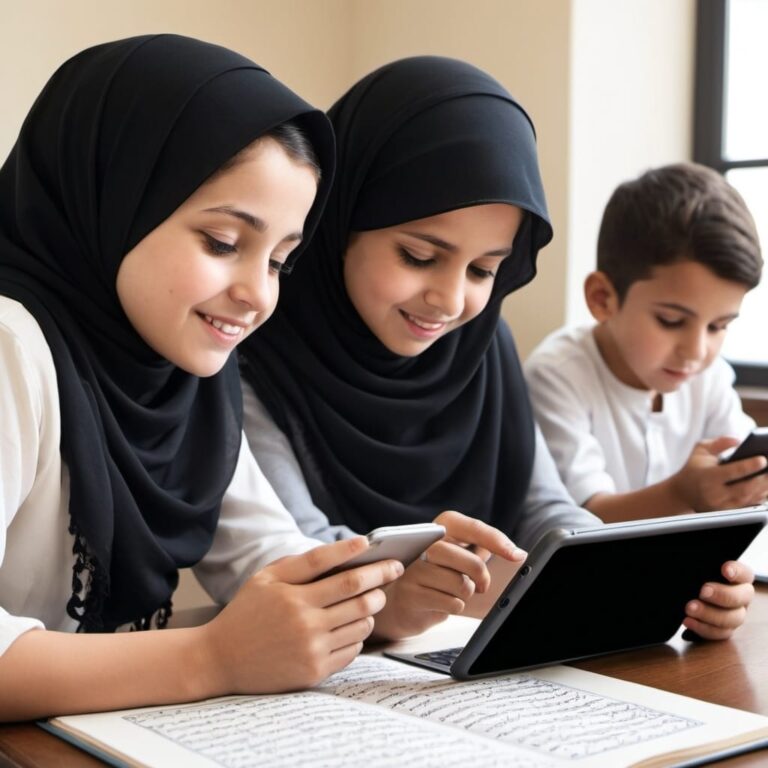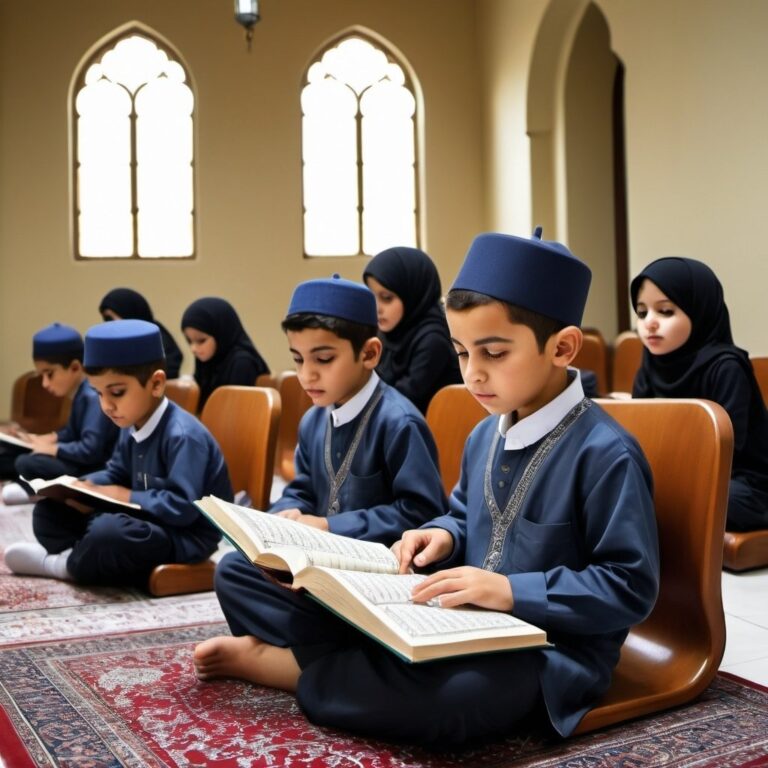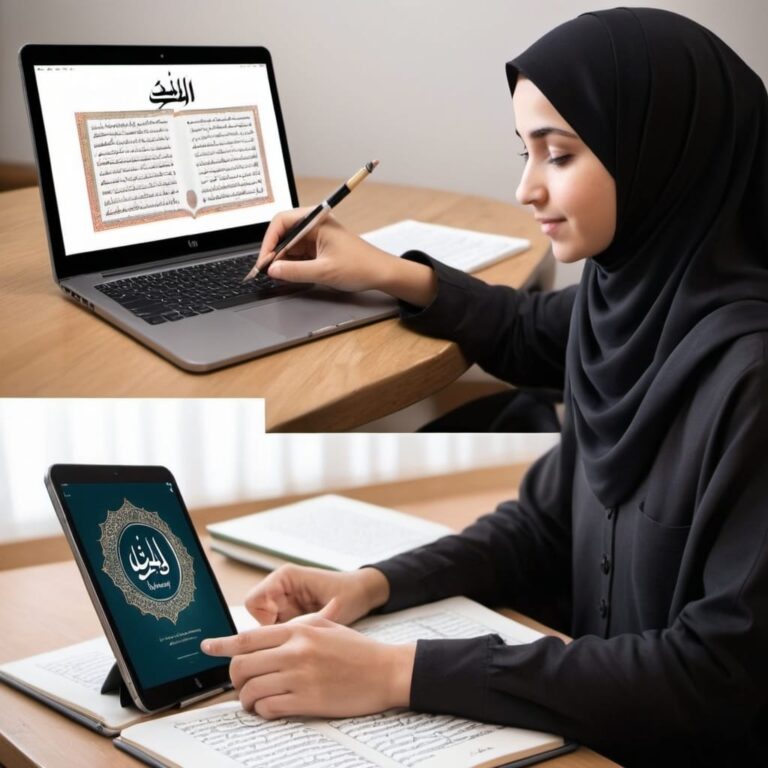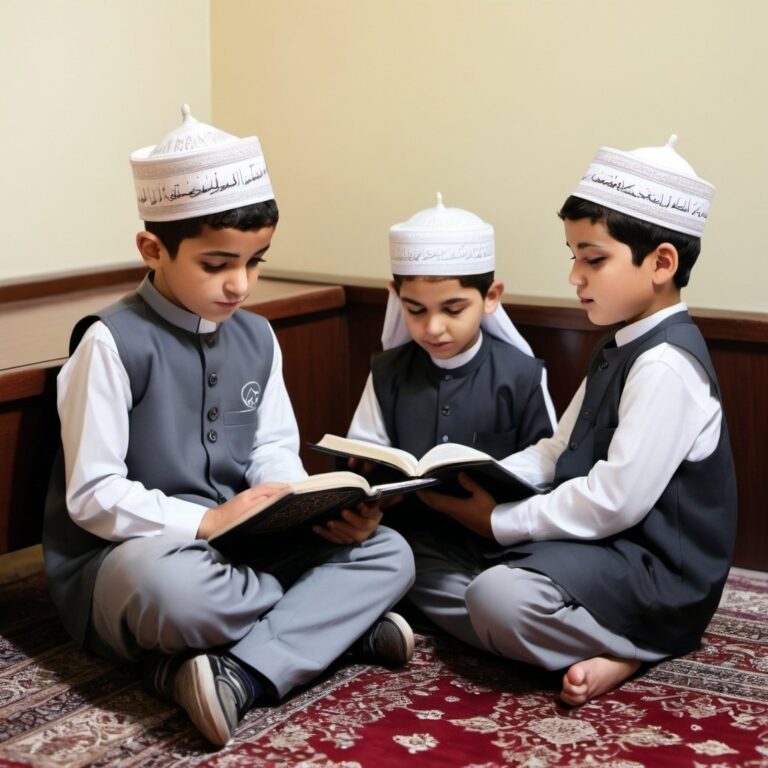Women in Islam A Journey Through Roles, Rights, and Revered Hadiths
Introduction
Islamic teachings emphasize the good sized roles and rights of ladies, a subject often surrounded via misconceptions and lack of know-how. In latest global society, it is extra vital than ever to shed light on the genuine popularity of women in Islam, their contributions, and the honour they may be accorded. This weblog ambitions to explore the multifaceted components of girls’s roles, rights, and significance in Islam, subsidized by means of Quranic verses and Hadiths. Whether you’re a Muslim seeking deeper understanding or a person curious about Islamic teachings, this comprehensive guide will provide valuable insights.

Historical Context of Women in Islam
Understanding the ancient context of ladies in Islam requires a glance lower back at pre-Islamic Arab society, wherein girls have been often oppressed and lacked simple rights. The creation of Islam delivered profound adjustments, emphasizing dignity, recognize, and equality for girls. Early Islamic records showcases ladies participating actively in social, political, and spiritual spheres, marking a giant departure from their formerly marginalized roles.
In pre-Islamic Arabia, women had restrained rights and have been often dealt with as assets. Islam challenged those norms, introducing reforms that extended girls’s popularity. For example, women have been granted the proper to inherit belongings, a revolutionary trade at the time. This ancient backdrop is critical in knowledge the transformative effect of Islamic teachings on girls’s lives.
The shift from pre-Islamic practices to the principles laid out by using Islam highlights the religion’s revolutionary stance on girls’s rights. Early Islamic society saw ladies like Khadijah, the Prophet Muhammad’s first spouse, who became a a hit businesswoman, and Aisha, a renowned scholar and trainer, gambling pivotal roles. Their contributions set the level for a more inclusive society where girls could thrive.
Key Women Figures in Islamic History
Islamic records is replete with influential women who made vast contributions to their communities. Khadijah bint Khuwaylid, the first wife of the Prophet Muhammad, is a high example. She become not most effective a successful service provider however additionally a staunch supporter of the Prophet’s mission. Her unwavering faith and financial assist had been instrumental at some point of the early days of Islam.
Another distinguished determine is Aisha bint Abi Bakr, the Prophet’s wife, recognized for her profound knowledge and intelligence. Aisha performed a vital position inside the dissemination of Hadiths and Islamic jurisprudence. Her contributions to Islamic scholarship are extraordinary, and she or he stays a respected determine in Islamic history.
Fatimah bint Muhammad, the Prophet’s daughter, is likewise revered for her piety and willpower to social justice. She turned into acknowledged for her humility and generosity, regularly assisting the terrible and needy. Fatimah’s legacy maintains to inspire Muslim ladies around the sector to engage in charitable and social work.
Quranic Perspective on Women
The Quran, Islam’s holy e-book, includes numerous verses that spotlight the honour and rights afforded to women. Contrary to not unusual misconceptions, the Quran emphasizes gender equality and the significance of ladies in society. For instance, Surah An-Nisa (4:1) states, “O mankind, fear your Lord, who created you from one soul and made from it its mate and dispersed from both of them many ladies and men.”
This verse underscores the equality of ladies and men in creation and their complementary roles in life. The Quran also addresses ladies’s monetary rights, as seen in Surah An-Nisa (four:7), which grants ladies the right to inherit assets. This became a groundbreaking trade, making sure girls’s financial independence and security.
Additionally, the Quran advocates for ladies’s schooling and highbrow increase. Surah Al-Alaq (ninety six:1-5) encourages the pursuit of expertise for all believers, irrespective of gender. This emphasis on schooling has paved the way for endless Muslim ladies to excel in various fields, from technological know-how to literature.
Hadiths on Women
Hadiths, the sayings and movements of the Prophet Muhammad, provide further insights into the significance and appreciate accorded to girls in Islam. Authentic Hadiths spotlight the Prophet’s efforts to uplift women’s fame and make sure their rights. For instance, the Prophet stated, “The first-rate of you are individuals who are pleasant to their wives” (Tirmidhi).
This Hadith underscores the importance of treating women with kindness and recognize in the circle of relatives unit. Another Hadith states, “Seeking information is an duty upon each Muslim” (Ibn Majah), emphasizing the significance of training for each men and women.
It’s crucial to dispel misconceptions about Hadiths which can be frequently misinterpreted or taken out of context. Authentic Hadiths always suggest for women’s rights, dignity, and empowerment. By expertise those teachings, we can appreciate the profound respect Islam holds for girls.
Women’s Rights in Islam
Islam presents women a complete set of rights that embody diverse components of life. These rights have been progressive at the time of their revelation and stay relevant these days. One of the essential rights is the right to education. The Prophet Muhammad emphasised that looking for information is compulsory for each Muslim, male and female.
Women’s economic rights are also properly-established in Islam. They have the right to personal property, conduct enterprise, and get hold of inheritance. Surah An-Nisa (4:32) states, “For guys is a proportion of what they have earned, and for ladies is a percentage of what they have got earned.” This verse affirms ladies’s monetary independence and their proper to economic autonomy.
Marriage rights are any other essential aspect. Islam ensures that girls have the proper to choose their partner and are searching for divorce if necessary. The idea of mahr (dowry) serves as a monetary safety measure for women in marriage. These rights mirror the significance Islam places on ladies’s properly-being and empowerment.
The Modern Muslim Woman
In current Islamic societies, women continue to make significant strides in numerous fields. While demanding situations persist, there was excellent development in education, employment, and leadership roles. Many Muslim women are breaking obstacles and difficult stereotypes, contributing to their communities and beyond.
Education stays a key consciousness, with growing numbers of Muslim girls pursuing higher education and excelling in various disciplines. Organizations and initiatives devoted to empowering women are gaining momentum, supplying valuable aid and resources.
However, demanding situations along with gender inequality and cultural obstacles nevertheless exist in some areas. Addressing these problems calls for a collective attempt to uphold the values of justice and equality that Islam advocates. By promoting education, consciousness, and empowerment, we can create a more inclusive and equitable society for all.
Frequently Asked Questions (FAQs) on Women in Islam
1. What is the function of ladies in Islam?
Women in Islam have various roles, such as being caregivers, educators, experts, and network leaders. They are encouraged to actively take part in all components of life while upholding their values and duties.
2. How does Islam view women’s training and paintings?
Islam strongly helps ladies’s training and paintings. The pursuit of information is obligatory for all Muslims, and women are recommended to pursue careers that align with their talents and pursuits.
3. Can Muslim ladies lead prayers or come to be Imams?
Traditionally, men lead blended-gender congregational prayers, but girls can lead other ladies in prayer. While the position of Imam is normally held by means of guys, women can maintain leadership positions in various capacities in the network.
4. What are the rights of ladies in marriage in keeping with Islam?
Women have the proper to pick out their partner, receive a dowry (mahr), and are seeking for divorce if wished. They are entitled to monetary aid and respectful treatment within the marriage.
5. How does Islam shield women’s economic rights?
Islam presents women the proper to very own belongings, conduct enterprise, and obtain inheritance. These financial rights make sure their economic independence and security.
6. Do girls have the right to select their personal spouse in Islam?
Yes, girls have the proper to select their spouse. Forced marriages aren’t permissible in Islam, and a girl’s consent is essential for a legitimate marriage.
7. Is there a get dressed code for girls in Islam?
Yes, women are endorsed to get dressed modestly, overlaying their frame except for the face and hands. The particular interpretation of modesty can also vary based totally on cultural and nearby differences.
8. Are women allowed to paintings in Islam?
Yes, girls are allowed to work and pursue careers. Islam encourages girls to make a contribution to society even as retaining a stability among their professional and personal duties.
nine. What is the significance of the Hijab in Islam?
The Hijab is a image of modesty and religion. It represents a woman’s commitment to her beliefs and serves as a reminder of her values and identification.
10. Can girls participate in non secular sports and leadership roles?
Yes, ladies can take part in spiritual sports, which includes prayer, fasting, and pilgrimage. They can also hold management roles within the network, mainly in educational and social initiatives.
eleven. How does Islam cope with home violence in opposition to ladies?
Islam strictly prohibits domestic violence and advocates for the respectful and fair treatment of women. The Prophet Muhammad emphasised kindness and compassion in circle of relatives relationships.
12. Are ladies allowed to pursue higher schooling and expert careers?
Yes, girls are encouraged to pursue better schooling and professional careers. Many Muslim girls excel in numerous fields, contributing to society’s development and improvement.
13. What are the inheritance rights of girls in Islam?
Women have the proper to inherit belongings from their parents, spouses, and different spouse and children. The Quran outlines particular stocks of inheritance to ensure equity and justice.
14. How does Islam promote ladies’s health and nicely-being?
Islam emphasizes the importance of bodily and mental health for all individuals. Women are endorsed to are seeking hospital therapy and preserve a wholesome way of life.
15. Are women allowed to journey independently in Islam?
Yes, girls are allowed to tour independently. While a few cultural practices may also impose restrictions, Islam itself lets in ladies to travel for education, paintings, and different purposes.
16. How does Islam view women’s contributions to society?
Islam values girls’s contributions to society and encourages their energetic participation in diverse fields. Women’s roles are seen as complementary to men’s, and their efforts are distinctly reputable.
17. What is the role of girls in Islamic training?
Women play a important position in Islamic training as instructors, pupils, and mentors. They make a contribution to the renovation and dissemination of Islamic expertise and values.
18. Can ladies have interaction in business and entrepreneurship in Islam?
Yes, girls can have interaction in business and entrepreneurship. The example of Khadijah bint Khuwaylid, a a success businesswoman, highlights the support for women’s financial endeavors in Islam.
19. How does Islam cope with problems of gender equality?
Islam promotes gender equality via emphasizing the same well worth and dignity of men and women. While recognizing their unique roles, Islam advocates for equity and justice in all elements of existence.
20. What steps may be taken to empower girls in Islamic societies?
Empowering ladies in Islamic societies calls for promoting education, raising cognizance about their rights, and addressing cultural limitations. Encouraging ladies’s active participation in various fields is vital for progress.
Conclusion
Understanding the jobs, rights, and importance of girls in Islam is vital for fostering a greater inclusive and respectful society. By exploring ancient context, Quranic teachings, Hadiths, and present day examples, we have highlighted the widespread contributions and rights of Muslim girls. It’s essential to dispel misconceptions and recognize the profound respect Islam holds for ladies.
For those looking for to research extra, we inspire you to explore similarly sources, engage in significant discussions, and maintain to sell education and empowerment for women in all spheres of lifestyles. Together, we are able to create a global where each character, regardless of gender, can thrive and make contributions to the betterment of society.


